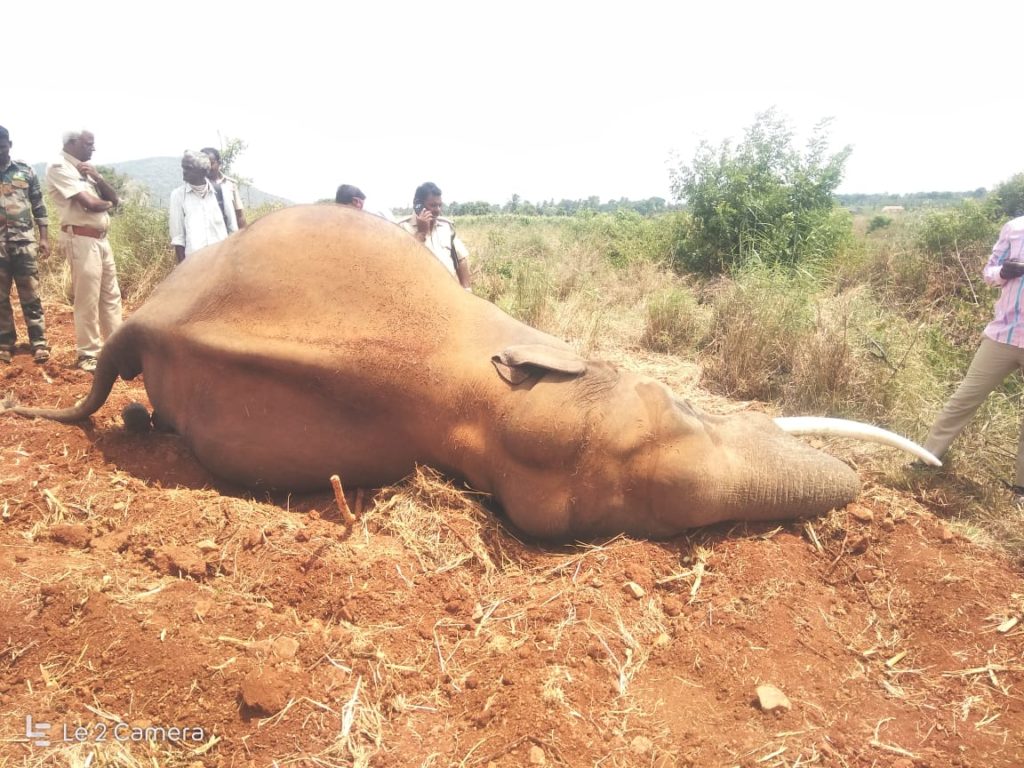Meera Bhardwaj
One more elephant succumbed to electrocution recently, this time on the forest fringes of Subramanya Range, Dakshin Kannada in Karnataka. Forest officials say elephants tend to come out of forests during the monsoon period and their deaths occur during these two-three months.

Three elephants have been electrocuted in the last one week in Karnataka and electrocution continues to be the major reason for the death of these gentle giants. This is the fourth one to be electrocuted in the past month with the deaths occurring in the districts of Dakshin Kannada, Ramnagara, Chamarajanagara and Chikkamagaluru.
FOUR ELECTROCUTIONS
Month Area District
Aug 31 Subramanya Dakshin Kannada
Aug 28 Mugguru Ramanagara
Aug 26 Sirigodu MM Hills
July 31 Yemmedoddi Chikkamagaluru
ILLEGAL ELECTRIC FENCING
On Monday, a tusker was electrocuted in Bilinele section of Subramanya range in Dakshin Kannada district. While on Thursday night, the carcass of a young elephant was found in the Mugguru range, Cauvery Wildlife Sanctuary which had sustained and died due to severe electric shock. Earlier, also one elephant had been electrocuted on 16 April in Cowdahalli range.

In MM Hills Wildlife Sanctuary, on Wednesday night, another elephant was electrocuted in PG Palya Range. This is the second case of electrocution as an incident of elephant electrocution had taken place on March 2 in Hanur Range.
V Yedukondalu, DCF Chamrajnagar Wildlife Division said, “We have booked cases against two people, one an owner of a solar plant (still under construction) and the other, an operator. A snapped wire was seen hanging in this property. Nearby a farmer had also drawn power from an electric pole to protect his maize crop from straying wildlife.”
MAXIMUM CROP RAIDS
Speaking to Green Minute, Sanjay Mohan, Head of Forest Force and PCCF said, “We are facing this problem during monsoons for a period of two to three months as this is the time when we see maximum crop raids by elephants. They have the habit of leaving forests and raiding crops especially Ragi and Maize and in the process, a few of them have been electrocuted. However, in PA where the rail fencing has been done, the incidents of crop raids by elephants have come down to a large extent. There are plenty of grasses available in the forests after monsoons but still they come attracted by fruits and vegetables while they have been feeding on ragi and maize for hundreds of years.”
Forest officials say electrocution of elephants are the major reason for their deaths in Karnataka after poaching and poisoning. With free electric power available for farmers, many have been drawing illegally to power their fences to protect their crops from wild boars. Unfortunately, when elephants stray from PA to the villages to feast on their crops, they have died while accidentally stepping on the live wires during the night time.

Yedukondalu adds, “It is very difficult to identify as for what purpose, the farmer is drawing power is difficult to identify. This area in MM Hills is two kilometres from the D-Line and being the elephant country, they roam around a 200-kilometre area. Patrolling is a very difficult task with the terrain being rough and inaccessible. It is dangerous for the forest staff too as they too may step on live wires. Detection of live wires which are rusted is difficult as it merges with the background.”
MORE PROTECTION NEEDED
Conservationists and activists express their serious concern as nearly 10 elephants have lost their lives in the state for varying reasons since the start of the Lockdown and call for more protection to this species. According to FIAPO, a federation of animal rights organization, wild elephants are electrocuted with startling regularity in India. Karnataka is also one of the states where electrocutions have overtaken poaching as a leading cause of unnatural death among elephants. For some farmers, elephants are a menace because they can demolish a crop within a matter of hours.

Small farmers who cannot afford commercial fences tend to improvise and a “homemade” electric fence is often just a single wire strung out on the periphery of a farm illegally connected to an overhead power line. Because they lack a transformer, illegal fences deliver a full blast of 220 volts of alternating current, strong enough to fell an elephant on the spot.
